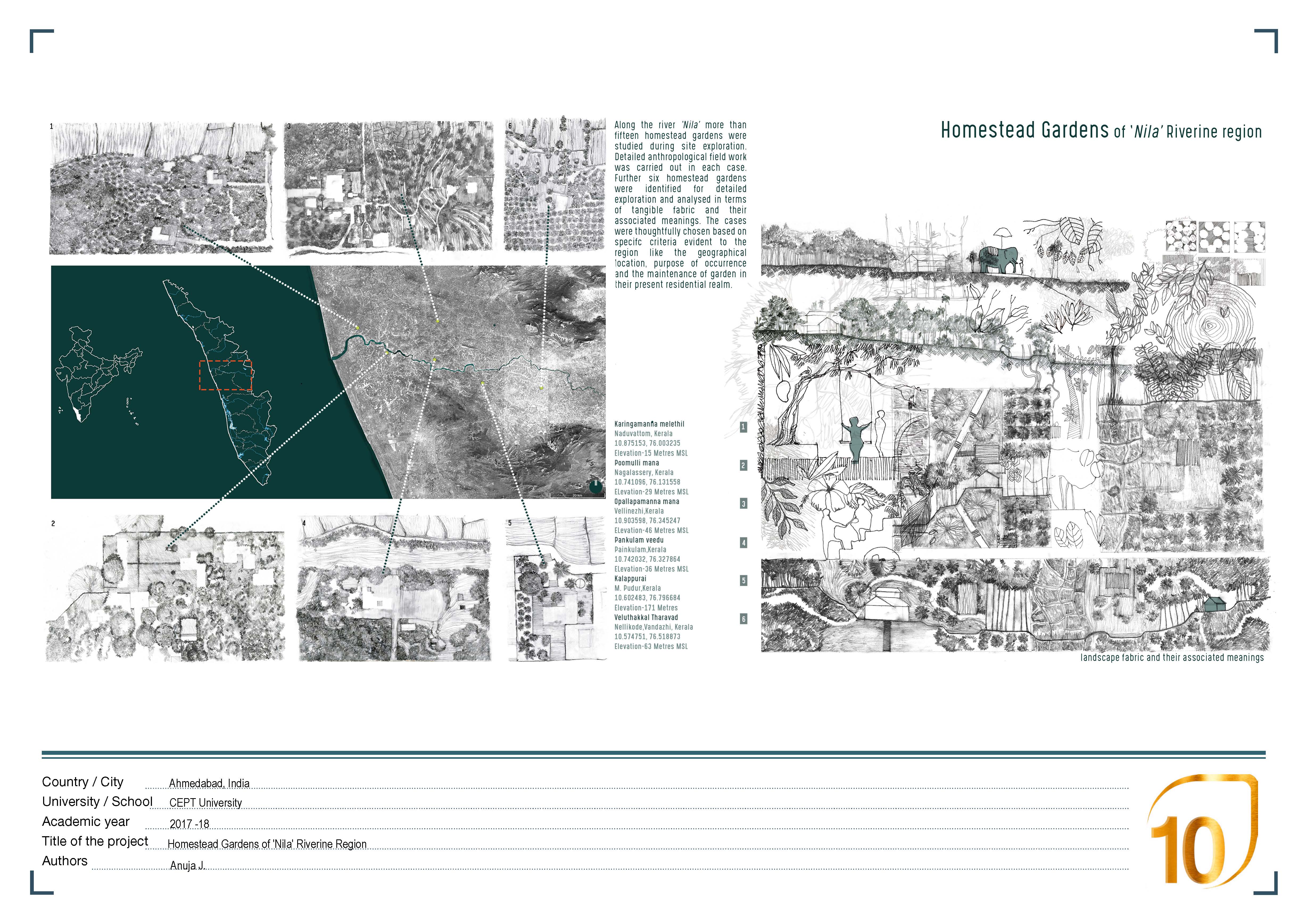
Homestead Gardens of the Nila Riverine Region
Independent Thesis (Sem 4)
CEPT University
The study region lies in the south of Indian subcontinent in the state of Kerala. It extends across the flood plains of river Nila, which originates in the Western Ghats and empties into the Arabian Sea in the west. There exists a unique cultural fabric along the river, where the vernacular homestead gardens represent a complex and rich microcosm of the larger setting defining itself as a place that in the process defines and in return holds the imprints of a certain way of life people lead.
In order to describe these vernacular gardens one cannot be satisfied with a formal description of its environment, because the garden is a deliberately maintained biotope that depends upon the social culture of its gardeners for survival over time. These vernacular gardens are places that contribute to the maintenance of a subculture with in a broader cultural context. The region has developed its specific forms owing to the varying eco regions as a response through variation in shape, size, proportion and content of the architecture of the home and its garden.
Homestead gardens are a place for family, socialization, experimentation, and cultivation of plants related to sustenance. These, though are places of small scale beauty and precision, but they are also keepers of the larger impressions of the cultural context. The study explains a method of mapping, understanding and decoding these homestead gardens to understand the cultural landscape in relation to people’s connection to the locality and explores its outcomes in terms of various frames of references.
